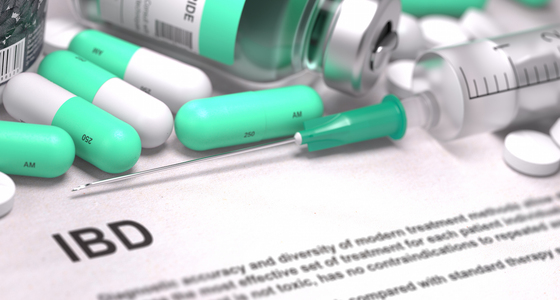If you have just been diagnosed with ulcerative colitis you will probably have lots of questions and may feel a bit scared or confused.
This article aims to answer many of the questions you will have if you are newly diagnosed with ulcerative colitis and provide you with links to more articles where you can read in depth about the different subjects covered.

Got to part 1 of this article - Just been diagnosed with ulcerative colitis
If the inflammation caused by your ulcerative colitis is consistently high then this can cause some serious complications. That’s why the aim of your treatment is to reduce this inflammation and get you into remission. Following the treatment plan set out by your gastroenterologist and looking after your general health and wellbeing is the best way to do this.
Some of the complications people with ulcerative colitis can experience are:
If you are concerned about any of these complications you should speak to your doctor about what risks and complications you could face.
There is now a biomarker test available which can help to predict whether you can expect to experience 'mild' or 'severe' ulcerative colitis, allowing doctors to target your treatment and hopefully control this inflammation better. The PredictSURE IBD test needs to be done when you are newly diagnosed with ulcerative colitis and before you start any treatment.
It’s important that you tell your doctor of any new symptoms you experience so they can monitor you for complications and treat you as early as possible.

We don’t know exactly why someone gets ulcerative colitis. We do know that it’s not because of something they have done. Researchers believe there are a few different factors which may combine to cause ulcerative colitis, rather than just a single cause.
These factors include
The cause of ulcerative colitis continues to be studied.
There are millions of people around the world who have ulcerative colitis. It is more common in some areas and groups of people than others. For example white people are more likely to have ulcerative colitis than black people or those of Asian origin. People from an eastern european Jewish background are also more likely to get ulcerative colitis. It is more common in more northerly countries.
In the UK it's thought that anywhere between 300,000 - 500,000 people have inflammatory bowel diseases, such as ulcerative colitis.
Some people you might have heard of who have ulcerative colitis are:
Ulcerative colitis itself is not life-threatening, but it can cause some complications which are.
Some of the things that can increase your risk of death with ulcerative colitis include complications following surgery, serious infections, toxic megacolon and colorectal cancer, but it’s important to remember that the risks of getting these are small.
There are also new drugs constantly becoming available for use by ulcerative colitis patients.

It is completely normal to feel alone, confused or overwhelmed if you have just been diagnosed with ulcerative colitis.
You may find that talking to people about your diagnosis helps you to process and understand your feelings. You may choose to talk to a friend or family member, or a counsellor or medical professional. Learning more about UC may also help you to understand things. There’s lots of information about ulcerative colitis on this (IBDrelief) website.
Some other credible places you may find useful information are:
Some other places you may find useful information are:
Your hospital may also have an IBD nurse that you can ask questions. IBD nurses work with gastroenterologists and are your point of contact with your hospital. They will be able to give you information and advice and point you in the direction of local support groups if you would like to meet other people with ulcerative colitis. Many of the national charities in each country will run these support groups or meet ups as well as information events.
You may find that your ulcerative colitis has an impact on your mental health, such as causing you stress, anxiety, depression or affecting your self confidence. If you feel you are struggling with your mental wellness in some way then you should talk to your doctor and they may be able to refer you to someone who can support you.
After receiving your diagnosis of ulcerative colitis your doctor should talk to you about the next steps in your treatment and come up with a plan which sets out this treatment, when you will next see your doctor and the monitoring you will need. If you don’t have a plan then don’t be afraid to ask your doctor or IBD nurse about these things. If doing this makes you feel nervous, and it is completely normal to feel this way, or you feel overwhelmed or forget things when you are in the doctor’s office then you may find it helpful to write down some questions or to take someone with you that you trust to support you or speak on your behalf
After being diagnosed with ulcerative colitis you may want to tell your family and friends about your diagnosis. Explaining what UC is or how it affects you can be hard. You could start by giving them this article to read through and then invite them to ask you questions afterwards.
Don’t be afraid to let people know how they can support you. Many people will want to help you but may be unsure of how to do so.

